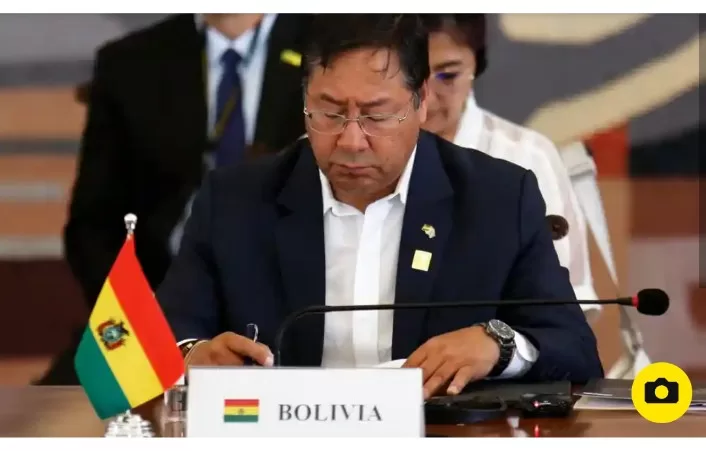In the wake of the recent escalation in the Israel-Hamas conflict, several South American nations have lodged strong diplomatic protests against Israel. Bolivia, under its leftwing leadership, took the boldest step by completely severing its diplomatic ties with Israel. This decision is primarily attributed to allegations of war crimes and severe human rights abuses being perpetrated in the Gaza Strip.
The official announcement of Bolivia’s decision was made during a press conference, conducted on Tuesday afternoon, by María Nela Prada, a minister serving in President Luis Arce’s administration. Minister Prada vehemently urged an immediate halt to the relentless attacks on the Gaza Strip, which have tragically claimed the lives of numerous civilians and forced the displacement of Palestinian residents.
Hours following Bolivia’s decision, Chile and Colombia followed suit by recalling their respective ambassadors from Israel. In a further expression of discontent, Brazil’s president voiced criticism against the ongoing airstrikes on Gaza.
Deputy Foreign Minister of Bolivia, Freddy Mamani Machaca, articulated the nation’s decision as “a firm disapproval and condemnation of Israel’s aggressive and disproportionate military offensive in the Gaza Strip, which poses a threat to international peace and security.”
This diplomatic maneuver by Bolivia was prompted by former President Evo Morales, who called for the nation to sever its ties with Israel. Morales, in a statement on social media platform X (formerly known as Twitter), insisted on classifying Israel as a “terrorist state.” He further advocated for the Israeli Prime Minister, Benjamin Netanyahu, and other associated parties to be referred to the international criminal court on charges of genocide and war crimes.
It is noteworthy that Bolivia had previously severed relations with Israel in 2009 following the Israeli invasion of the Gaza Strip. However, diplomatic ties were restored in 2020 during the presidency of the rightwing leader, Jeanine Áñez.
Colombia’s leftwing President, Gustavo Petro, also expressed his discontent by recalling the Colombian ambassador over what he referred to as Israel’s “massacre of the Palestinian people.” Petro’s earlier remarks, equating Israel’s actions to those of Adolf Hitler’s Nazis, led to a stern rebuke from Israel’s foreign ministry, which accused him of endangering Jewish lives and encouraging “hostile and antisemitic statements.”
Chile’s President, Gabriel Boric, took a similar stance, recalling the country’s ambassador in Tel Aviv to discuss the “unacceptable violations of international humanitarian law” he perceived Israel to be committing in Gaza. Boric emphasized the significant number of civilian victims, including women and children, as evidence of the Israeli military operation’s “collective punishment of the Palestinian civilian population in Gaza.”
Furthermore, Brazilian President Luiz Inácio Lula da Silva voiced his criticism of the Israeli Prime Minister’s approach, referring to “the insanity of wanting to destroy the Gaza Strip” while neglecting the presence of innocent civilians, especially women and children, who suffer the most in the conflict. Lula urged a halt to the violence, emphasizing the dire consequences for children in particular.
The Israel-Hamas conflict continues to be a source of global concern, with nations across the world monitoring developments closely and expressing their stances on the matter.




